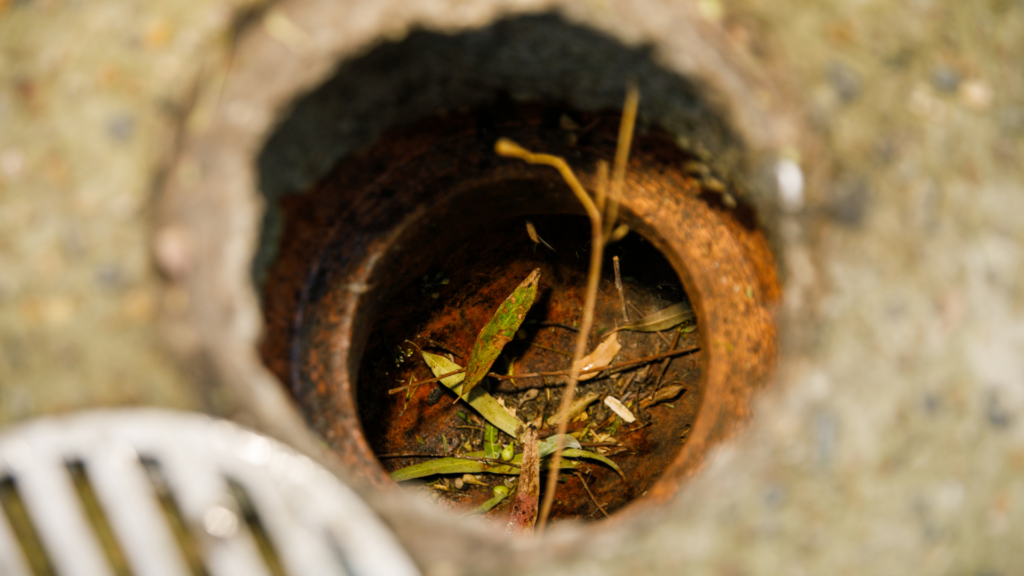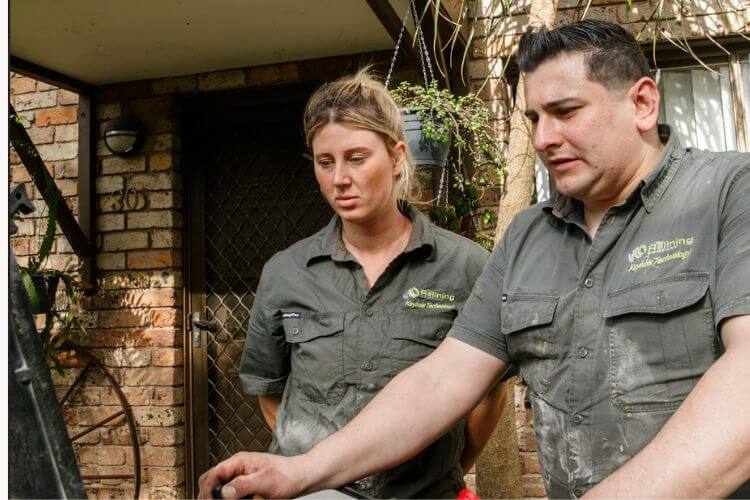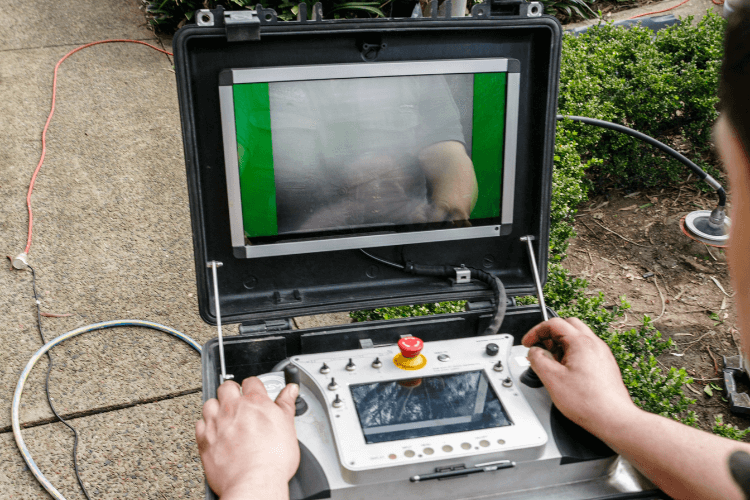A drain inspection is a surefire way to assess your plumbing system’s current condition and check for any potential clogs, cracks, or other issues with drainage.
While we all do our best to keep our drains clean, over time, build up can add layers of soap scum, trapped hair, food grease or other debris.
And that’s only the things we’re putting down the drain, let alone the tree roots, shifting earth, and pipe degradation that may have occurred further down the line.
A drain inspection is your best chance of catching these issues early, ensuring you maintain a healthy plumbing system for you and your family.
How are Drains Surveyed?
A drain inspection is a straightforward and efficient method of assessing your drain’s health. While drains can be checked manually, this method is limited by how far a plumber can reach and so is more suited for blockages close to the drain opening.
A CCTV drain inspection is a revolutionary method of assessment that can reach every corner of your plumbing, even deep underground. It is conducted by feeding a small CCTV camera attached to a long lead into your plumbing system to search for obstructions and other problems.
Using closed-circuit video technology, we can survey your drainage system without causing any unnecessary disruption or damage to your infrastructure. Best of all, the video footage can be recorded to keep an accurate record of all issues and repairs your drainage system has undergone.
Common Reasons to Get a Drain Inspection

If you’re getting strange smells coming up from your drain, or if the water is draining slowly or even not at all, it’s time to get a drain inspection.
A drainage problem or blockage could be anything from consolidated grease and food waste to a tree root intrusion, while leaks causing damp earth or wet walls or floors could be signs of cracks or seal disruption in your pipes.
Whatever the cause and whatever the damage, a drain inspection will quickly identify the problem and diagnose the fix. However, it’s best to pre-empt problems with your plumbing, so if your pipes are drains are running at anything but their very best, it can save you plenty of time and money (not to mention a massive headache) to book a drain inspection so that your local plumber can provide a solution before it’s too late.
Types of Drain Inspections
In the past, it used to be that drain inspections had to be conducted manually. A long piece of wire, ending in a hook, was threaded down the drain (or an unscrewed section of pipe) and any debris was scooped out.
While this is still effective for blockages close to the drain entrance, we now have the benefit of advanced tools (the use of a drain camera and video recording) to use in our inspections.
A CCTV drain inspection is the most comprehensive way to conduct a plumbing inspection, providing an unparalleled view of your underground plumbing.
No longer is there any need to dig up suspected problems or prise up the flooring to get to the difficult parts of the plumbing. From debris build-up to cracks, or other foreign objects bending or warping the pipe’s structural integrity, the CCTV camera will find it all, quickly and efficiently.
How Often Should You Have a Drain Inspection?
How often you should get a drain inspection of your property depends on a few factors. How old the property is (and how old the plumbing is), the frequency of use, any history of drainage issues, and local environmental factors all play a part.
The difference between residential and commercial properties is another factor to consider. For instance, a small family in a new house will need inspections less often than a commercial kitchen.
While booking in for regular inspections may feel like a hassle, the difference is stark. What is a minor convenience for the small family, could end up being a disastrous loss of revenue for a restaurant.
Overall, we recommend a minimum of one inspection every year to keep on top of your plumbing maintenance and to optimise your sanitation and pipeline flow.
Benefits of Regular Drain Inspections
The benefits of regular drain inspections are twofold: time and money. Nipping a sewer issue in the bud early can save you multitudes later on in terms of a costly repair.
For example, we can check for any bulges or deformation in the diameter of your pipes and identify whether a tree root is slowly prising the pipe apart, well before it actually penetrates the casing and spills water, or worse wastewater, on the grounds of your property.
Regular check-ups also improve the longevity of your plumbing. Just like a regular check-up at the doctor or dentist, or a regular service on your car, the regular evaluation of your pipes by a qualified plumber can keep your system working as well as possible for as long as possible.
How to Choose a Drain Inspection Service

Okay, you’re convinced, but where do you go to find someone that can provide an exceptional service? How do you know they know what they’re doing, and more importantly, what they’re looking at? It pays to do your due diligence in finding the right plumber.
Key qualities to look for in a professional service are those that can explain every step of the process, what their plumbing services entail, and how acquainted they are with their equipment. Don’t be afraid to ask questions or raise your concerns about drainage problems. After all, they’re the experts.
Look up Google reviews from past customers, read through their professional experience on their team page, and assess their accredited certifications. If you see reviews brimming with customer satisfaction, that’s a sign you’ve found your plumber.
Book Your Drain Inspection Today
A CCTV pipe inspection can give you peace of mind and extend the life of your sewer pipes. A small cost now can save a massive price tag later.
With our no-digging plumbing camera system, we can find and fix that blocked kitchen sink or that smelly bathroom drain.
Save yourself future headaches and plumbing issues by booking a professional drain inspection today to protect your plumbing system.
Back to Top